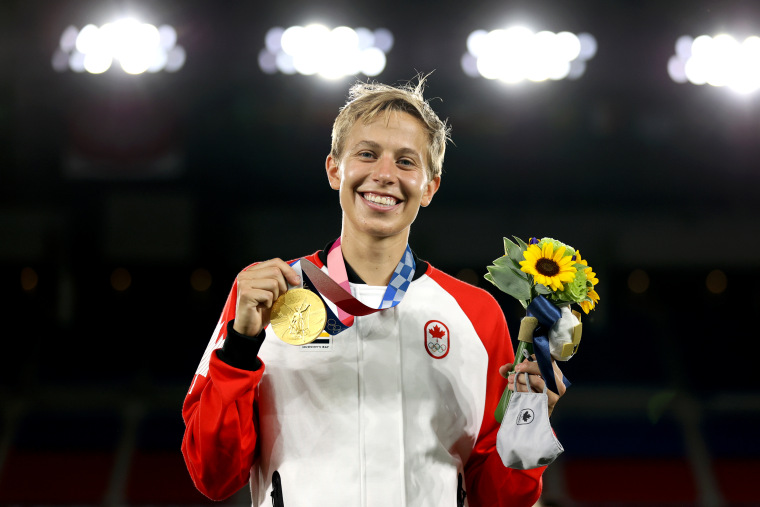International Olympic Committee issues new guidelines on transgender athletes
The International Olympic Committee announced a new framework for transgender and intersex athletes Tuesday, dropping controversial policies that required competing athletes to undergo “medically unnecessary” procedures or treatment.
In a six-page document, the IOC outlined 10 principles, which it described as “grounded on the respect for internationally recognised human rights,” that sports competitions should follow. It also said it will no longer require athletes to undergo hormone level modifications to compete.
“This Framework recognises both the need to ensure that everyone, irrespective of their gender identity or sex variations, can practise sport in a safe, harassment-free environment that recognises and respects their needs and identities,” the committee said.
The new framework is not legally binding and was developed following an “extensive consultation” with athletes, other sports organizations and experts in the fields of human rights, law and medicine, the IOC said. It comes just three months after the Tokyo Olympics, which saw the first transgender and intersex athletes compete in the Games’ history.
Tuesday’s framework replaces guidelines the IOC released in 2015, which put a limit on athletes’ testosterone levels that required some of them to undergo treatments the IOC now describes as “medically unnecessary.” Before 2015, the IOC required athletes to undergo genital surgery.
Chris Mosier was the first out trans athlete to compete on a U.S. national team, in the 2016 world championship for the sprint duathlon, and has challenged some of the previous guidelines. Mosier applauded the release of the new framework, writing on Twitter that it “takes the next step in centering human rights as the foundation of sport.”
“The new IOC Framework makes clear that no athlete has an inherent advantage & moves away from eligibility criteria focused on testosterone levels, a practice that caused harmful & abusive practices such as invasive physical examinations & sex testing,” he wrote.https://iframe.nbcnews.com/oak990r?_showcaption=true&app=1
Canadian soccer gold medalist Quinn, who in July became the first openly transgender athlete to participate in the Olympics, also chimed in, calling the new framework “groundbreaking.”
“Far too often, sport policy does not reflect the lived experience of marginalized athletes, and that’s especially true when it comes to transgender athletes and athletes with sex variations,” Quinn said in a statement. “This new IOC framework is groundbreaking in the way that it reflects what we know to be true — that athletes like me and my peers participate in sports without any inherent advantage, and that our humanity deserves to be respected.”

LGBTQ advocates welcomed the IOC’s new guidelines but stressed that following the implementation process is necessary.
Recommended
OUT POP CULTURESex, murder, martinis: Patricia Highsmith’s dark diaries finally see the light
OUT NEWSLawsuit challenges surgery requirement for N.C. birth certificate change
“As with any set of guidelines, the success of this new framework in ensuring a safe and welcoming environment within the Olympic movement will largely depend on the education and implementation process with national governing bodies, international federations, and other key stakeholders,” Anne Lieberman, the director of policy and programs at LGBTQ advocacy group Athlete Ally, said in a statement.
Some advocates argued that while the IOC’s new framework is intended for elite athletes, it bolsters their case in their fight against state bills in the United States that restrict transgender students’ participation in school sports.
“On the heels of the most anti-LGBTQ legislative session in history with the majority of bills targeting trans youth in sports, every state and lawmaker should listen to the experts from the world of sports, medicine, and athletes themselves to allow transgender youth the same opportunities to play with their friends, have fun, learn, grow, and benefit from the lasting life lessons and supportive community sports can provide,” Alex Schmider, the associate director of transgender representation at LGBTQ advocacy group GLAAD, said in a statement.
Ten U.S. states have enacted laws restricting trans students’ participation in school sports, according to the Movement Advancement Project, a nonprofit think tank. An additional 21 states have considered similar bills in 2021, according to the American Civil Liberties Union.